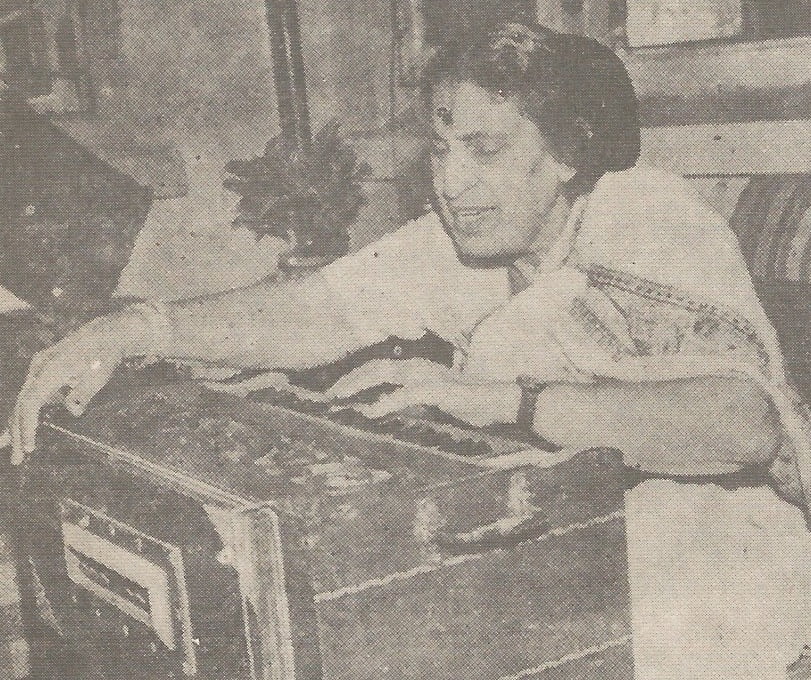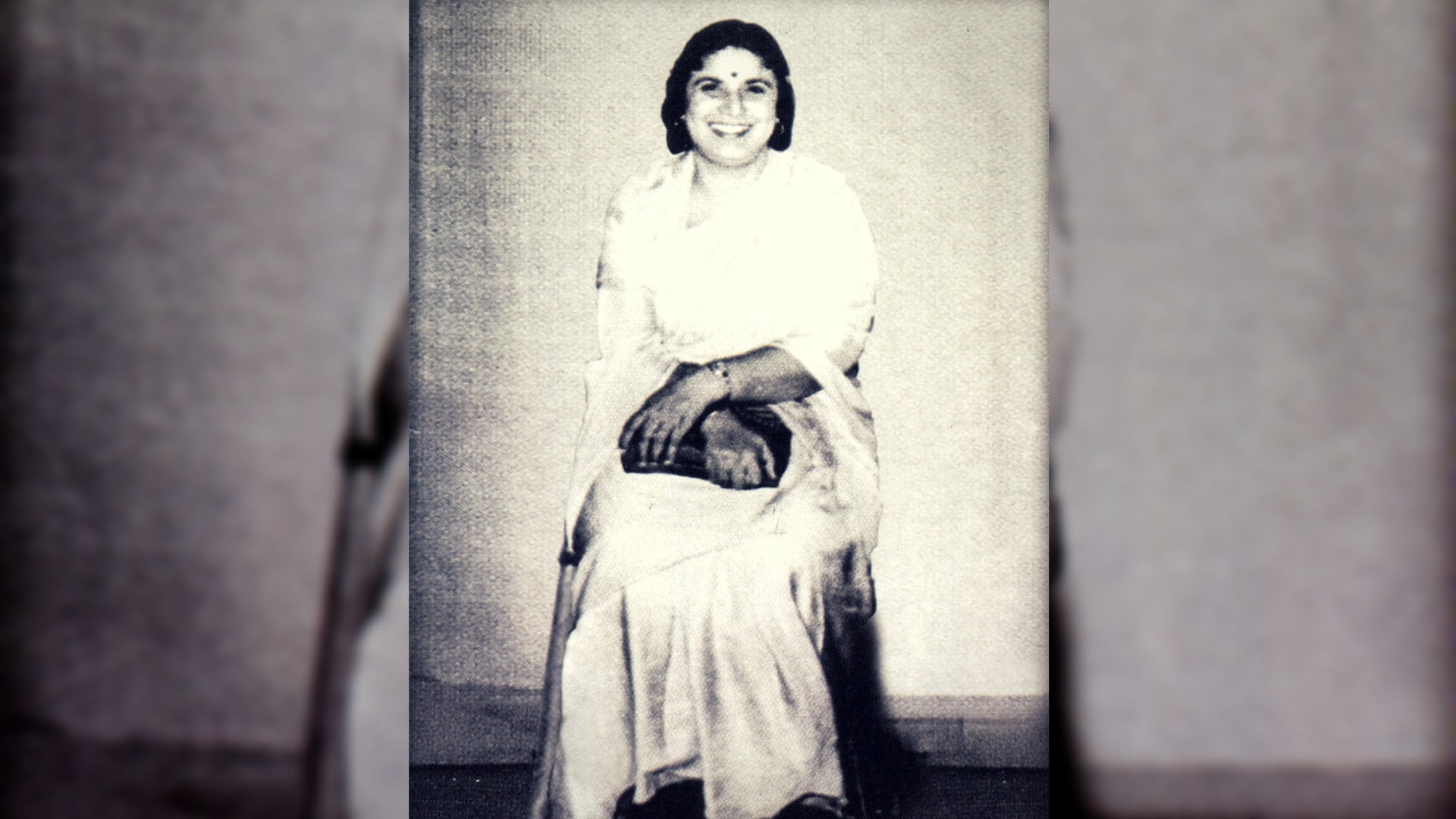Saraswati Devi was a music director in Hindi cinema and composed scores for many popular Hindi films in the 1930s and 1940s. Music direction has always been a male-dominated field in India and Saraswati Devi is one of the earliest female figures in the Indian film industry.
Early life
Saraswati Devi was born in a Parsi family in 1912, as Khurshid Mankesha Minocher-Homji. She studied Hindustani classical music from a young age under Vishnu Narayan Bhatkhande. She later joined Morris College, now rechristened as Bhatkhande Deemed Music University in Lucknow.

Bhatkhande Music Institute University, Lucknow. Image Credit: Facebook
In the 1920s, she started her career in singing at the newly established All India Radio in Mumbai. She and her sister Manek Homji hosted a popular program known as the ‘Homji Sisters’ Orchestra’.
Saraswati Devi met Himanshu Rai, the producer and founder of Bombay Talkies during a music concert in Lucknow. He invited her to move to Bombay and join him as a music director.
There were hardly any women working in cinema during that time as it has inherited a stigma attached to Indian classical and stage dancing. Women were often ostracized by their families and society for joining the film industry. Saraswati Devi and her sister received a similar reaction from the Parsi community for their decision to join the industry.
To counter this, the two sisters decided to change their names to hide their identity. Khurshid Mankesha became the singer and music director Saraswati Devi and her sister Manek Homji became the actress Chandraprabha.
Career as music director
Saraswati Devi began her career as a music director in Bombay Talkies in 1935, with the movie Jawani Ki Hawa. She had to train actors and actresses in singing since playback did not exist then. She herself was responsible for introducing playback singing in Mumbai by singing a song for her sister Chandraprabha.
Also Read: Bhanumathi Ramakrishna: Multiple Talents And Signature Arrogance | #IndianWomenInHistory
In 1936, she composed music for the film Janmabhoomi, featuring one of the first nationalist songs of Hindi cinema – Jai Jai Janani Janmabhoomi. The song’s chorus later became the signature tune for BBC’s Indian News Service.
Saraswati Devi worked at Bombay Talkies till 1941. After the death of Himanshu Rai, she started composing music for Minerva Movietone and later became an independent composer.

Image Credit: Cinema Vision India
By 1949, Saraswati Devi had worked on more than twenty movies. Her music was heavily influenced by her classical background. She composed and recorded ghazals with Habib Wali Muhammed for HMV music label, now known as Saregama. Her last composition was for the 1961 movie Babasa Ri Ladli.
She died in 1980 at the age of 68.
What we must remember
Saraswati Devi rose to success in a male-dominated field through her talent and her love for music. She was able to give the music being composed in Mumbai a separate identity from the already flourishing music industry in Kolkata. Since she had to change her name and her identity in order to pursue this career, not much is known about her personal life, except that she adopted six children during her lifetime.
Towards the end of her life, new composers such as Kishore Kumar and R D Burman started taking her tunes forward through their own music. For instance, her song ‘Koi humdum na raha’ was originally sung by Ashok Kumar in the movie Jeevan Naiya (1936) and later by Kishore Kumar in Jhumroo (1961).
It became one of Kishore Kumar’s most famous songs. Another celebrated song ‘Ek chatur naar karke singaar’ from the movie Padosan (1968) was originally composed by Saraswati Devi for the movie Jhoola (1941).
It is important to remember the musical legacy of Saraswati Devi and to celebrate her contribution to the Indian music industry.
References:
Hindi Lyrics
Revolvy
Hindi Film Song: Music Beyond Boundaries
Livemint
The Garland Encyclopedia of World Music: South Asia: The Indian Subcontinent
Also Read: Geeta Dutt: The Skylark With A Chequered Life | #IndianWomenInHistory
Featured Image Credit: Daily Social




